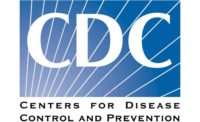Employers should also take caution and consult legal counsel before they send home an employee suspected of 2019-nCoV exposure or tell an employee not to come to work. The decision to remove an employee from the workplace for medical reasons must be based on objective belief that the employee may present a direct threat or significant, imminent harm to himself or herself or others. These decisions should not be based on rumor or unfounded concerns. CDC guidance should be consulted, as that agency has announced guidance to those who are sick with 2019-nCoV. Among other recommendations, CDC guidance provides that persons who come down with this virus should not go to work, school, or public areas (and should consult their personal medical provider).
To address these issues, employers should train human resources employees about the CDC guidance so they can understand the medical and scientific realities of 2019-nCoV exposure and, therefore, be prepared to respond appropriately if employees express concern about a coworker believed to be at risk for 2019-nCoV exposure.
Finally, employers should take all necessary steps to ensure that employees who are (or who are perceived to be) from regions impacted by 2019-nCoV do not experience discrimination or harassment based on race, national origin, or any perceived medical condition, as such treatment may violate Title VII, the ADA, or similar state and local laws.
Health Insurance Portability and Accountability Act (HIPAA)
The Office for Civil Rights (OCR) at the US Department of Health and Human Services (HHS) issued a Bulletin on February 3, addressing the 2019-nCoV outbreak. This bulletin serves as a reminder as to how a HIPAA Covered Entity (group health plan or healthcare provider) and its Business Associate (service provider) can use and disclose a participant’s or patient’s protected health information (PHI) as balanced against the privacy and confidentiality measures demanded under HIPAA. HIPAA protects an individual’s PHI, which includes, for example, medical, demographic, and other identifying information. The bulletin notes that while HIPAA protects the privacy of PHI, it does not preclude the use and disclosure of the minimum necessary amount of PHI when necessary to treat a patient, to protect the nation’s public health, or to prevent a serious and imminent threat to the health and safety of a person or the public. These are longstanding exceptions to the use and disclosure of PHI under HIPAA. Covered Entities should review their policies and procedures and train their Privacy Employees—workers who act on behalf of the Covered Entity—to continue to protect an individual’s PHI as balanced against these exceptions under HIPAA. Before disclosing any PHI, Covered Entities should exercise caution and consult with legal counsel to confirm that a use or disclosure will not constitute a HIPAA violation.
Immigration
The US Department of State announced a “Level 4: Do Not Travel” Advisory for travel to China. According to the advisory, those currently in China should consider leaving the country using commercial means. The State Department has requested that all non-essential US government personnel defer travel to China in light of 2019-nCoV. The Immigration and Nationality Act says that a foreign national is inadmissible if the person is determined to have a communicable disease of public health significance. 8 USC § 1182(a)(1). And infection with 2019-nCoV is a matter of public health significance. Individuals abroad who are applying for a visa to travel to the United States—and who a consular officer suspects may be contagious—should expect to be referred to a panel physician selected by the embassy or consulate to conduct medical examinations of individuals applying for a visa. At this time, foreign nationals who have visited China recently are temporarily barred from entering the United States, with the exception of immediate relatives of US citizens and permanent residents. Individuals in transit to the United States who fall ill—or who are determined to be ill by aircraft or vessel crew—should be reported by crewmembers to US public health and immigration officials at the port of arrival so that their health situation can be assessed immediately upon arrival. Regulations permit authorities to place the individual in quarantine or isolation.
Healthcare
As noted above, the CDC and the Trump Administration are being careful about how they characterize the virus in the United States. While many are concerned about its spread, the science shows that other diseases, such as measles, spread much more rapidly and can be equally as virulent as 2019-nCoV. The key that many health officials tout is the need for all individuals to ensure they are up to date on their vaccines, especially the flu vaccine. Many health officials are concerned with contributing to a sense of panic, when the influenza in the United States is impacting a far larger number of Americans. That said, however, healthcare institutions are poised to address any outbreak of the virus in the United States. Further, US officials do have a role to play in helping combat the virus internationally, with vaccines that may be deployed to help in China and around the world. Congress will be holding hearings with officials from the CDC and other health and human services agencies to determine how best to export our intellectual aid and to work with the WHO and others to support the efforts of China to treat and contain the current outbreak.






